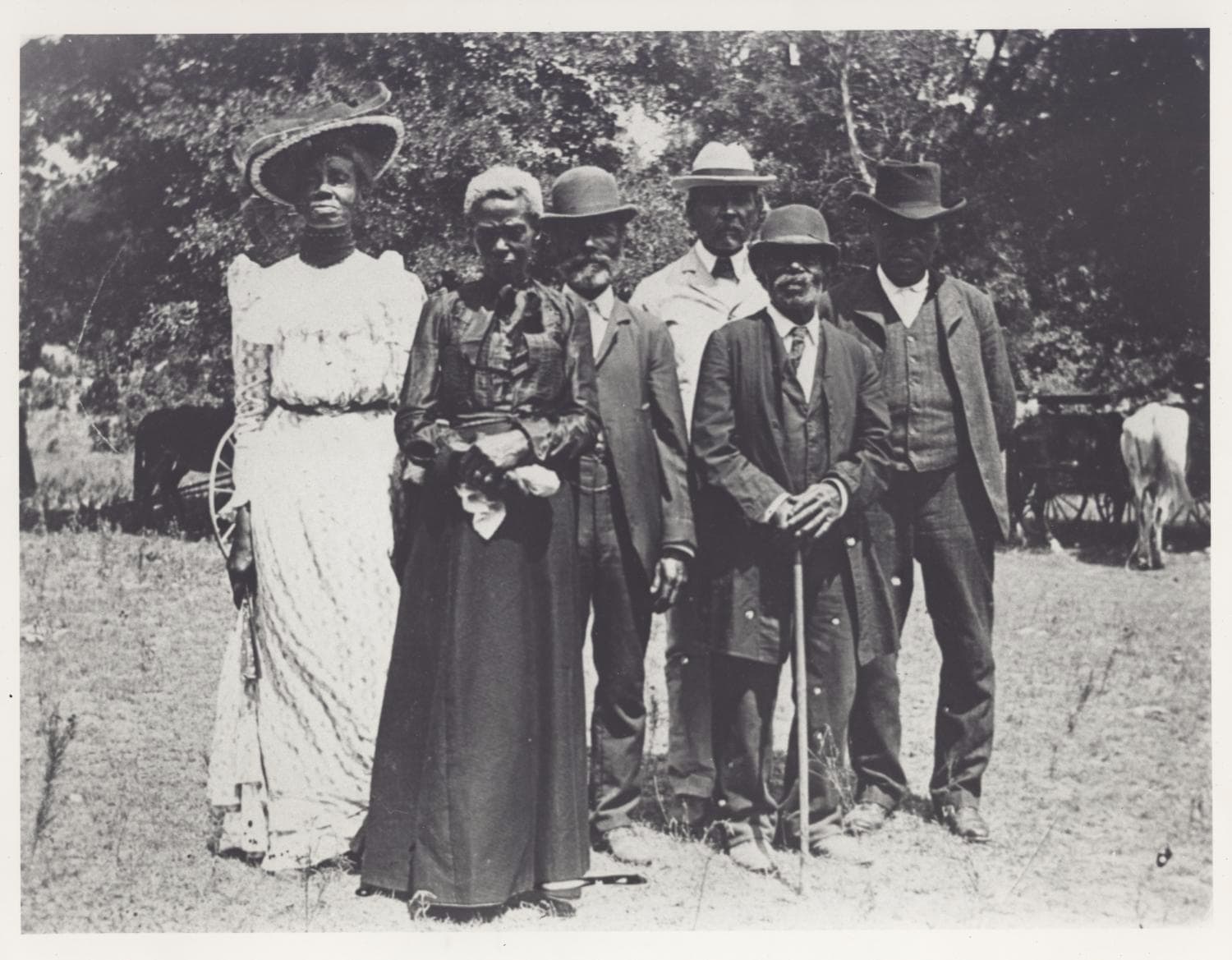
Juneteenth celebration in Austin, Texas, on June 19, 1900
Reported by Time Magazine "A Brief History of Juneteenth," by Gilbert Cruz, on 18 June 2008 -- There is a common misconception among Americans that Abraham Lincoln freed the slaves with a stroke of his pen. Yet the Emancipation Proclamation, which went into effect on Jan. 1, 1863, did no such thing — or, at least, it didn't do a very good job of it. Two and a half years later, on June 19, 1865, Union soldiers sailed into Galveston, Texas, announced the end of the Civil War, and read aloud a general order freeing the quarter-million slaves residing in the state. It's likely that none of them had any idea that they had actually been freed more than two years before. It was truly a day of mass emancipation. It has become known as Juneteenth.
Junteenth Day Parade
Since then, Juneteenth has been a day of celebration for many African Americans, a de facto second Independence Day commemorating the end of slavery and a first step toward inclusion in the greater American dream. It's a bittersweet holiday, "a time of celebration, but also a time of reflection, healing, and hopefully a time for the country to come together and deal with its slave legacy," says the Rev. Ronald V. Meyers, chairman of the National Juneteenth Observance Foundation. Meyers has worked for almost 15 years to get Juneteenth recognized by state legislatures. Currently, a little more than half of U.S. states acknowledge Juneteenth in some form or another, usually on the third Saturday of June.
Only one, however, actually celebrates it as a legal state holiday: Texas. Juneteenth celebrations began there in the years following General Gordon Granger's 1865 proclamation in Galveston and continued for decades. The tradition spread to bordering Southern states, such as Arkansas and Louisiana, as migrating African Americans fanned out from Texas. It reached as far as California — where San Francisco has held one of the nation's largest Juneteenth celebrations for the last five-plus decades — and Minnesota, where Minneapolis boasts a large festival.
Yet as one would expect from an unofficial holiday, its popularity has waxed and waned over the decades. It fell from favor during the civil rights struggles of the 1950s and '60s, as African Americans looked more to change their future rather than focus on the past. Following a resurgence in popularity in the '70s, however, Texas state legislator Al Edwards in 1979 introduced a bill to make Juneteenth a state holiday; the first state-approved celebration took place the following year. Edwards, sometimes referred to as the father of Juneteenth (and less well known for his support in 2005 of a bill that would have banned sexy high school cheerleading), is one of many who has been working to make it a national holiday. In years past, Senator Barack Obama has co-sponsored legislation to make Juneteenth a national holiday.

Ashton Villa, from whose front balcony the Emancipation Proclamation was read on June 19, 1865.
In recognizing the history of American freedom, advocates say, Juneteenth is as deserving of recognition as Independence Day. "We may have gotten there in different ways and at different times," says Meyers of blacks and whites, "but you can't really celebrate freedom in America by just going with the Fourth of July."
(source: http://www.time.com/time/nation/article/0,8599,1815936,00.html#ixzz1xnVYCRAk)
Major General Gordon Granger




No comments:
Post a Comment